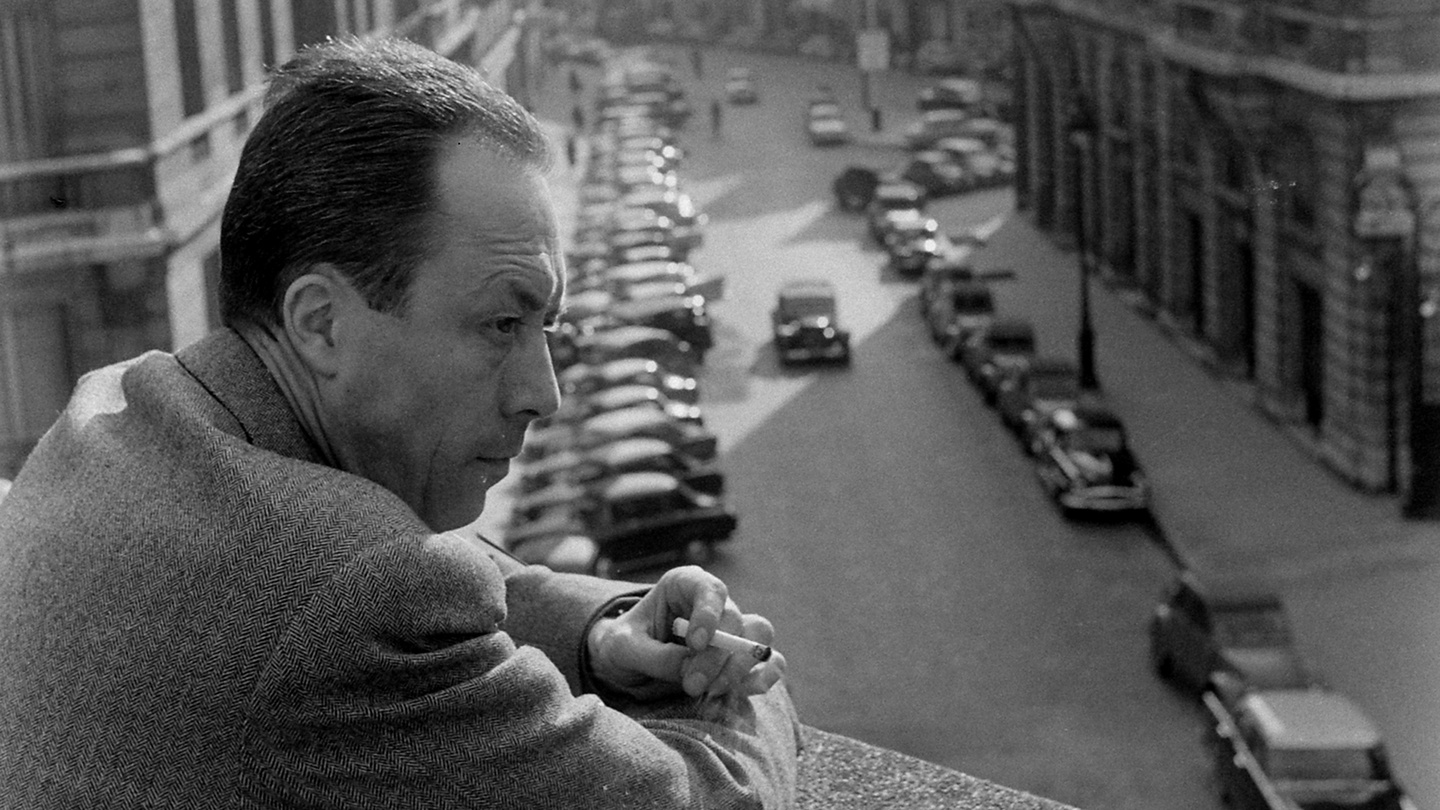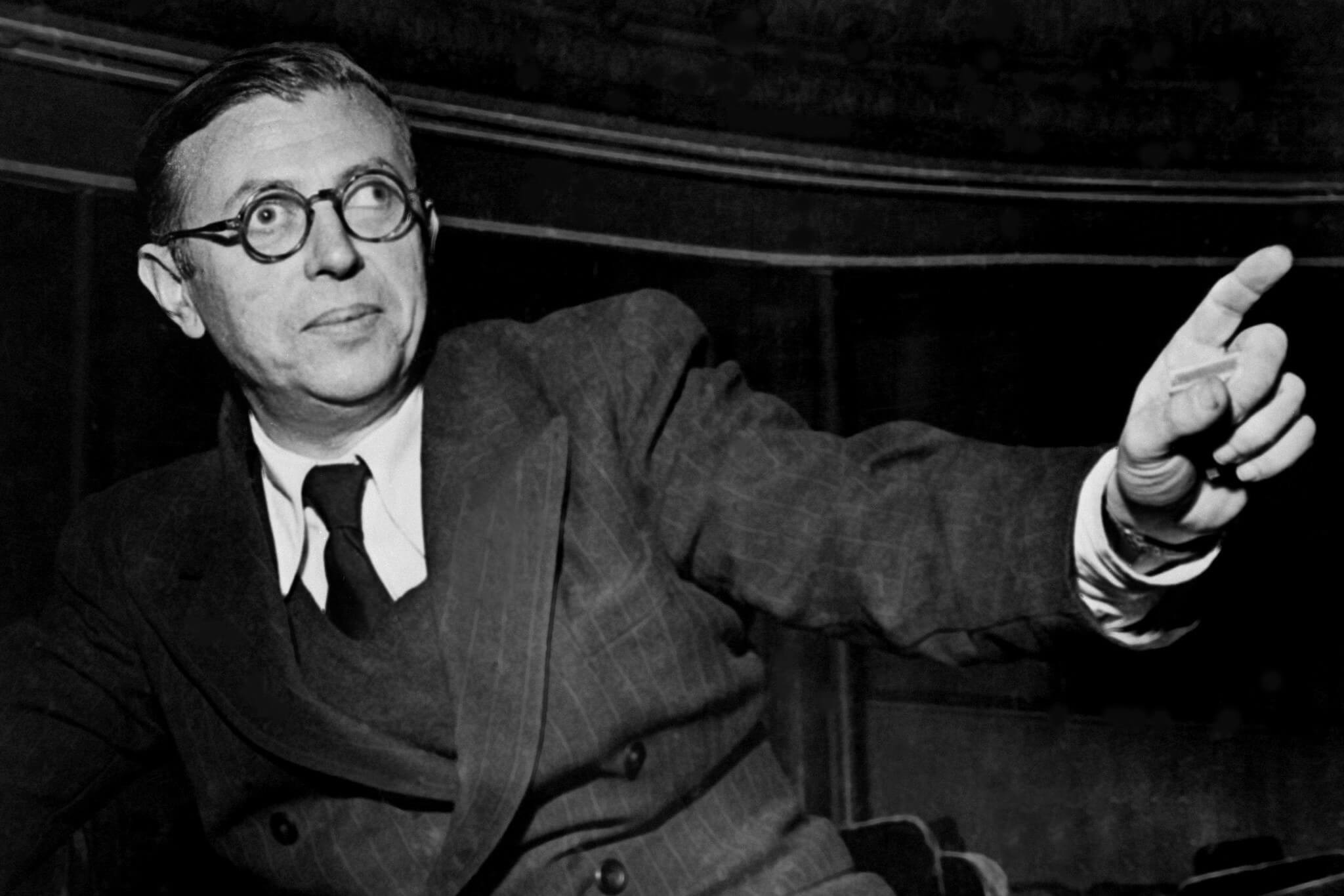What sets Albert Camu’s philosophy apart from Jean-Paul Sartre?

Comparing two great Philosophers
Albert Camus: A Philosophical Perspective on Existentialism Beyond Sartre.
Albert Camus and Jean-Paul Sartre are two of the most influential French philosophers of the 20th century. While both thinkers are associated with existentialism, their philosophies differ in many ways. Camus is known for his focus on the absurd, while Sartre is known for his focus on freedom and responsibility. Camus’ philosophy is also characterized by his emphasis on the individual’s experience of life, while Sartre’s is more concerned with the collective experience. Additionally, Camus’ philosophy is more optimistic than Sartre’s, which is often seen as pessimistic. In this essay, we will explore the differences between Camus and Sartre’s philosophies and how they set each other apart.
Exploring the Contrasts Between Albert Camus and Jean-Paul Sartre’s Philosophies
Albert Camus and Jean-Paul Sartre were two of the most influential philosophers of the twentieth century. While they both had a profound impact on the world of philosophy, their views on life and the world around them were vastly different.
On the surface, Camus and Sartre seemed to have a lot in common. Both were French, both were existentialists, and both were passionate about their beliefs. However, when it came to their philosophies, they couldn’t have been more different.
For Camus, life was a struggle against the absurd. He believed that life was meaningless and that humans should accept this fact and live life to the fullest. He was a proponent of living in the moment and embracing the joys of life.
On the other hand, Sartre believed that life was full of meaning and purpose. He argued that humans had the power to create their own meaning and that they should strive to make the world a better place. He was a proponent of taking action and making a difference in the world.
The contrast between Camus and Sartre’s philosophies is quite humorous. While Camus was content to accept life’s absurdity and enjoy the moment, Sartre was determined to make a difference and create a better world. It’s almost as if they were two sides of the same coin, each with their own unique perspective on life.
No matter which philosophy you subscribe to, it’s clear that both Camus and Sartre had a profound impact on the world of philosophy. Their contrasting views on life and the world around them will continue to inspire generations to come.
Examining the Distinctive Elements of Albert Camus’ Existentialism
Albert Camus’ existentialism is a unique blend of philosophy and literature that has captivated readers for decades. His writing style is often described as a combination of the absurd and the poetic, and his tone is often humorous and lighthearted.

Albert Camus Existentialism
Camus’ existentialism is rooted in the idea that life is absurd and that humans must accept this absurdity and make the most of it. He emphasizes the importance of living in the present moment and embracing the freedom of choice that comes with it. He also emphasizes the importance of living authentically and embracing one’s own individual identity.
One of the most distinctive elements of Camus’ existentialism is his use of paradox. He often uses paradox to illustrate the absurdity of life and to emphasize the importance of accepting it. For example, in The Myth of Sisyphus, Camus writes, “The struggle itself toward the heights is enough to fill a man’s heart. One must imagine Sisyphus happy.” This paradoxical statement illustrates the idea that life is absurd, but that it is still worth living.
The Importance of Metaphors in Camus’ Existentialism
Another distinctive element of Camus’ existentialism is his use of metaphor. He often uses metaphors to illustrate the absurdity of life and to emphasize the importance of embracing it. For example, in The Stranger, Camus writes, “The sun was setting, and the sea was like a sheet of lead.” This metaphor illustrates the idea that life is meaningless and that humans must accept this fact and make the most of it.
Finally, Camus’ writing style is often characterized by its humor and lightheartedness. He often uses humor to illustrate the absurdity of life and to emphasize the importance of embracing it. For example, in The Plague, Camus writes, “The plague had brought out all the latent comedy of human existence.” This humorous statement illustrates the idea that life is absurd, but that it is still worth living.
In conclusion, Albert Camus’ existentialism is a unique blend of philosophy and literature that has captivated readers for decades. His writing style is often described as a combination of the absurd and the poetic, and his tone is often humorous and lighthearted. His distinctive elements include his use of paradox, metaphor, and humor to illustrate the absurdity of life and to emphasize the importance of embracing it.
Comparing the Different Approaches to Life and Death in Albert Camus and Jean-Paul Sartre’s Thought
Albert Camus and Jean-Paul Sartre had two very different approaches to life and death. While both philosophers were existentialists, their views on the subject were quite distinct.
Camus believed that life was absurd and that death was the ultimate end. He argued that life was a struggle against the inevitability of death, and that the only way to make sense of life was to accept the absurdity of it all. He believed that life was a game of chance, and that one should embrace the uncertainty of it.

Jean-Paul Sartre
Sartre, on the other hand, believed that life was a struggle for meaning and that death was a part of that struggle. He argued that life was a journey of self-discovery and that death was a necessary part of that journey. He believed that life was a series of choices and that one should make the most of those choices.
So, while both philosophers had different views on life and death, they both agreed that life was a struggle and that death was a part of that struggle. The only difference was in how they viewed the struggle. Camus saw it as a game of chance, while Sartre saw it as a journey of self-discovery.
In conclusion, while Albert Camus and Jean-Paul Sartre had different approaches to life and death, they both agreed that life was a struggle and that death was a part of that struggle. The only difference was in how they viewed the struggle. Camus saw it as a game of chance, while Sartre saw it as a journey of self-discovery. So, while they may have had different views on life and death, they both agreed that life was a struggle and that death was a part of that struggle.
Conclusion
Albert Camus and Jean-Paul Sartre both had unique and influential philosophies, but what sets Albert Camus’ philosophy apart from Jean-Paul Sartre’s is his focus on the individual’s responsibility to make sense of the world and to find meaning in life. Camus believed that life was absurd and that it was up to the individual to make sense of it, while Sartre believed that life was meaningless and that it was up to the individual to create meaning. Camus’ philosophy is more optimistic and encourages individuals to take responsibility for their lives, while Sartre’s philosophy is more pessimistic and encourages individuals to accept the meaninglessness of life.




